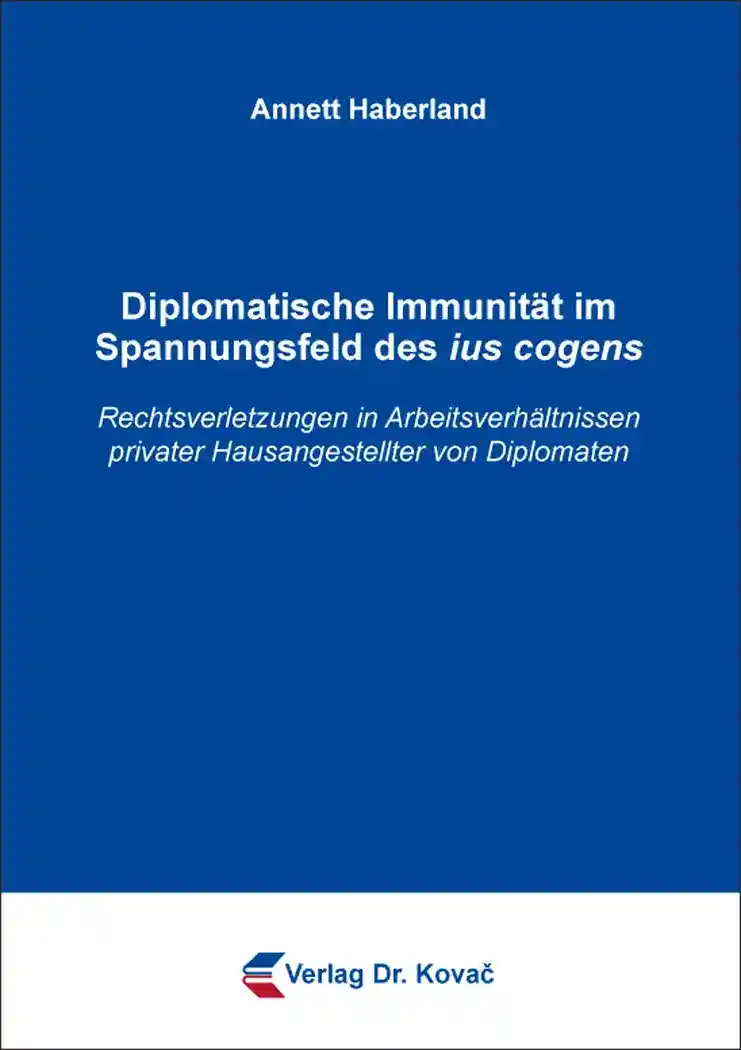Annett HaberlandDiplomatische Immunität im Spannungsfeld des ius cogens
Rechtsverletzungen in Arbeitsverhältnissen privater Hausangestellter von Diplomaten
Studien zur Rechtswissenschaft, volume 478
Hamburg 2023, 252 pages
ISBN 978-3-339-13374-8 (print) |ISBN 978-3-339-13375-5 (eBook)
About this book deutschenglish
Private domestic workers in diplomatic households are a particularly vulnerable group of people. Not only are they almost without rights exposed to violations of labor law, but in the case of physical and psychological assaults they have hardly any possibilities to enforce their rights in court. This is due to the diplomatic immunity of their employers, which protects them from legal recourse in the state in which they are currently deployed. This phd addresses the question of whether there are ways to limit diplomatic immunity or what alternative mechanisms can be put in place to protect private domestic workers by the receiving state. Currently, private domestic workers are in a vacuum in most states. The problem is well known and yet, for politically justifiable reasons, governments find themselves prevented from actively intervening to protect this group of people. Even though it is now obligatory in Germany that an employment contract is concluded between the private domestic workers and the diplomatic employer, in which the basic rights and obligations are agreed upon, the persons concerned cannot enforce their claims in case of contractual breaches due to diplomatic immunity, which in principle precludes legal recourse against the protected persons. Moreover, the employment contract is directly linked to the residence status of the private domestic workers. It is therefore not possible for them to change employers, so they are also in a coercive situation due to the linkage under residence law. So far, the case law has been extremely restrictive, drawing on considerations of international (customary) law for the maintenance of diplomatic immunity in the employment of private domestic workers. This is true even in cases where the violations go far beyond labor law violations and reach the level of human rights violations. At present, this area of tension seems difficult to resolve by legal means. However, preventive and repressive intervention seems possible. Some countries are already working with blacklists and compensation funds, which the author considers to be effective means.
Keywords
ArbeitsvertragAusbeutungBotschaftDiplomatDiplomatieDiplomatische ImmunitätHausangestellteImmunitätMenschenrechteSelf-Vontained RegimeVölkergewohnheitsrechtWiener Übereinkommen über diplomatische BeziehungenWÜDIhr Werk im Verlag Dr. Kovač

Möchten Sie Ihre wissenschaftliche Arbeit publizieren? Erfahren Sie mehr über unsere günstigen Konditionen und unseren Service für Autorinnen und Autoren.
